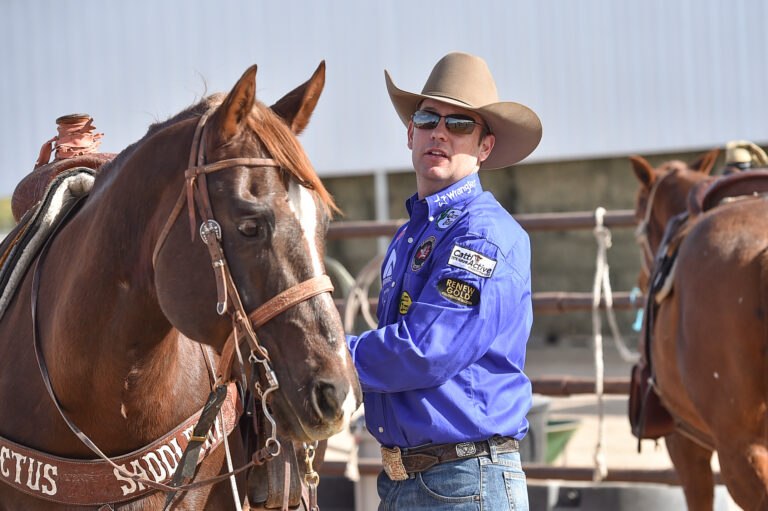In the Thomas & Mack Center in December 2021, Brady Minor backed into the box and looked over at someone besides his brother for the first time in 15 years.
Rewind to September. Imagine, with Riley Minor gutting it out on crutches at the final rodeo of the season, how badly Brady wanted to punch his little brother a ticket to Vegas to pay his bills.
Or consider Daniel Green’s choice on day three of the ’96 NFR, when sudden pericarditis put his big brother in a Vegas hospital for what looked to be days during their best shot at a world title. Daniel could have picked up No. 16 that night—Dennis Gatz—and stayed in the average. Instead, he turned out two nights so his brother could rope when he healed up.
Blood is thicker than water. But what kind of pressure comes with that loyalty? And what is it actually like to quit your brother—or to win the world with him? We talked to several of the best brother teams in history to get the nitty-gritty.
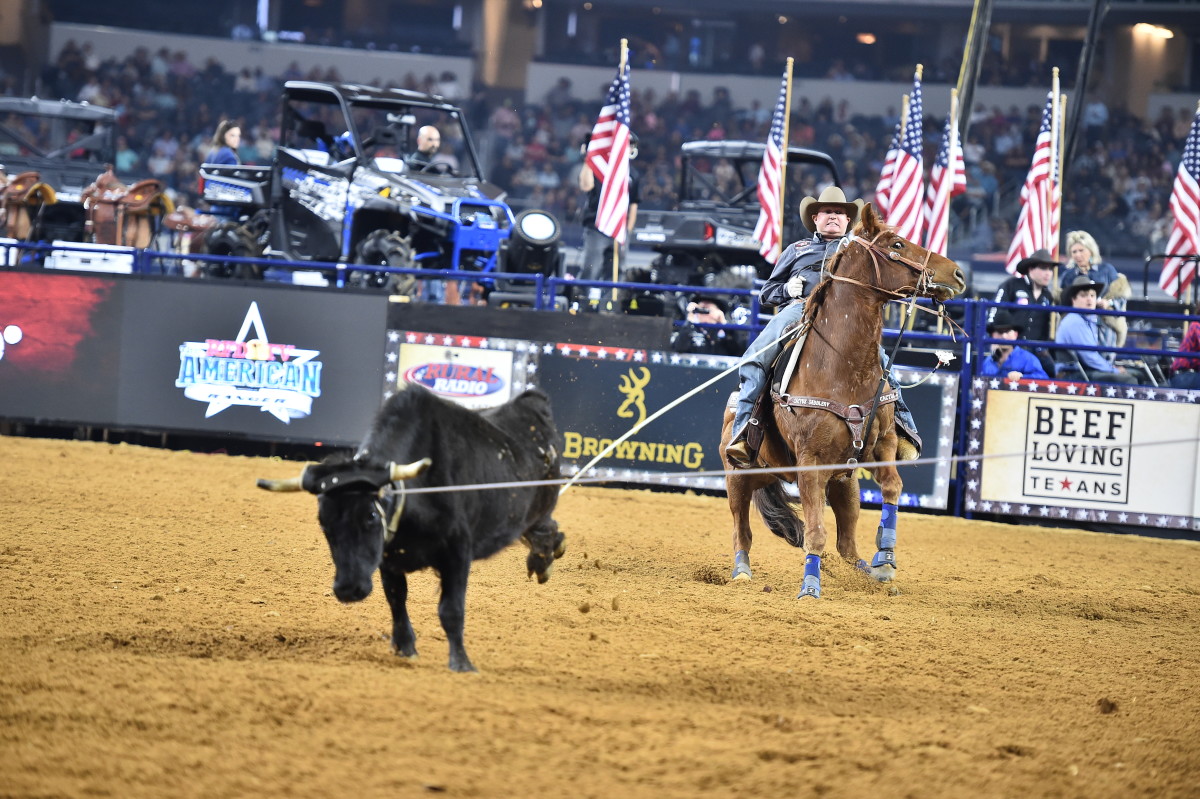
Even though disagreements get personal with siblings, Justin Johnson says it’s an advantage to rope with your brother. After all, nobody can fine-tune their run better than a pair of guys who shared bunk beds, backgrounds and arena burgers their entire lives.
“Jhett and I are kind of weird; we get along awful good,” said Justin Johnson of Casper, Wyoming, who finished 17th in the world with Jhett in 1996, 15 years before Jhett’s gold-buckle run. “It would have been unbelievable to make the Finals with my brother, and I hope my nephews [Kellan and Carson] get to experience it. Jhett’s a world champ and I’ve respected what he’s done. I was part of the ride with him, though. I helped him get ready for it.”
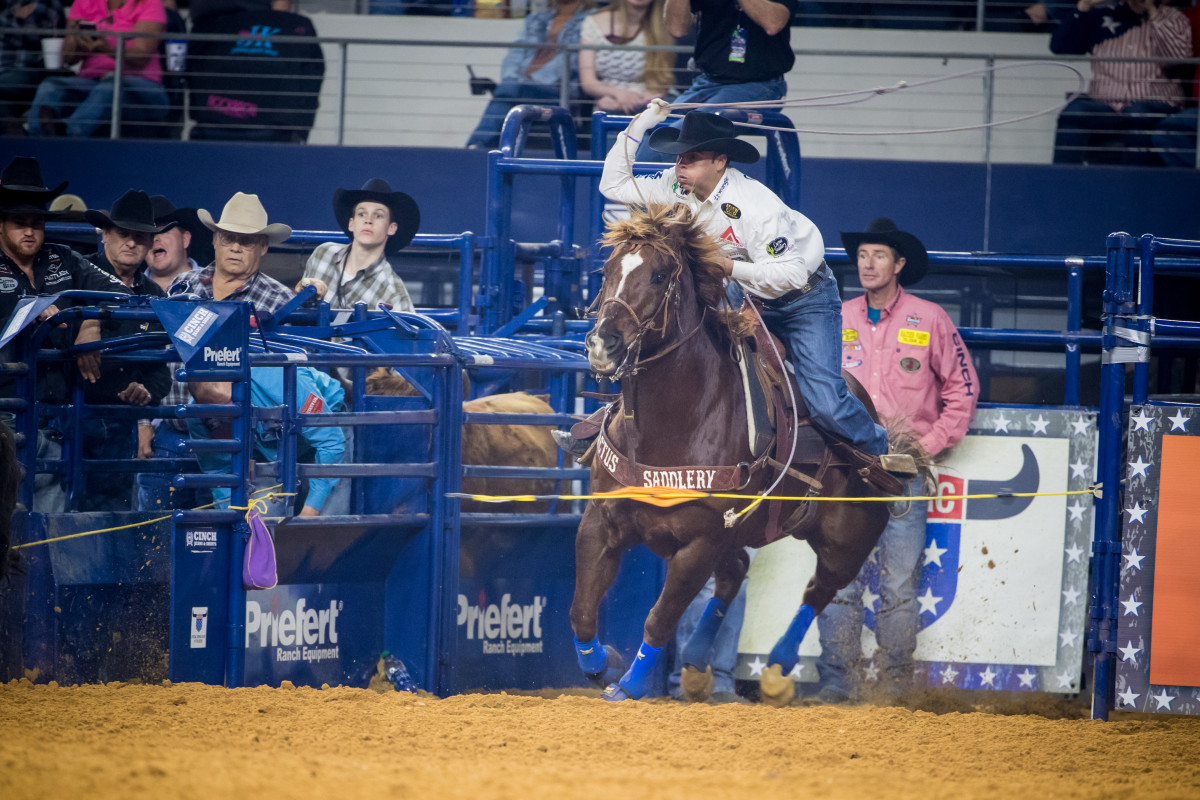
A couple of the world’s best who didn’t get along quite as well were Jimmy and John Bill Rodriguez—California greats who came along two decades after 1942 world-champion brothers Vern and Vic Castro. ProRodeos in their day were enter-twice. Although the Rodriguez boys traveled together and made several NFRs, they would only rope together as second partners.
“You loved to win with your brother, but I knew if it was a steady deal, it wouldn’t work,” said Jimmy, a four-time world-champion header. “He had a completely different personality than me.”
But the Hall-of-Famer is still plenty proud of his brother, who made the NFR in his own right eight times, won the all-around at Salinas and “could really rope.”
Another pair of siblings who didn’t just make the Finals—they won it—were David and Dennis Motes. In at least three trips together to Oklahoma City, the Motes boys claimed the NFR average title and 1977 world championship (which was decided at the Finals that year). It was all part of David’s eventual 22 total qualifications and four NFR average titles. He shares a revelation: The purpose of brotherly arguments is to make each other better. And that sure makes family Christmas more fun.
“When you’re winning, the whole family wins,” said David. “Everybody does good.”
Glenn and Hazel Motes were beaming, no doubt, considering Glenn had turned steers at the 1960 NFR. Having that legacy in the family is something that pushed Daniel and Chris Green, as well. With an NFR-average-champ cousin in Rickey Green and a world-champ uncle in Walt Woodard, those boys hit the ground supposed to rope—and win. Despite the times they would, in Chris’ words, “throw down,” the Green boys grew up partners in high school and were runner-up CNFR champs in 1991 before making four straight NFRs together.
Chris never considered roping with anyone else. He envisioned them collecting some ten qualifications together, like the Minors have since done.
“It was always a dream, you know, to get to the Finals with my brother,” said Chris. “Growing up, it was just what we were supposed to do.”
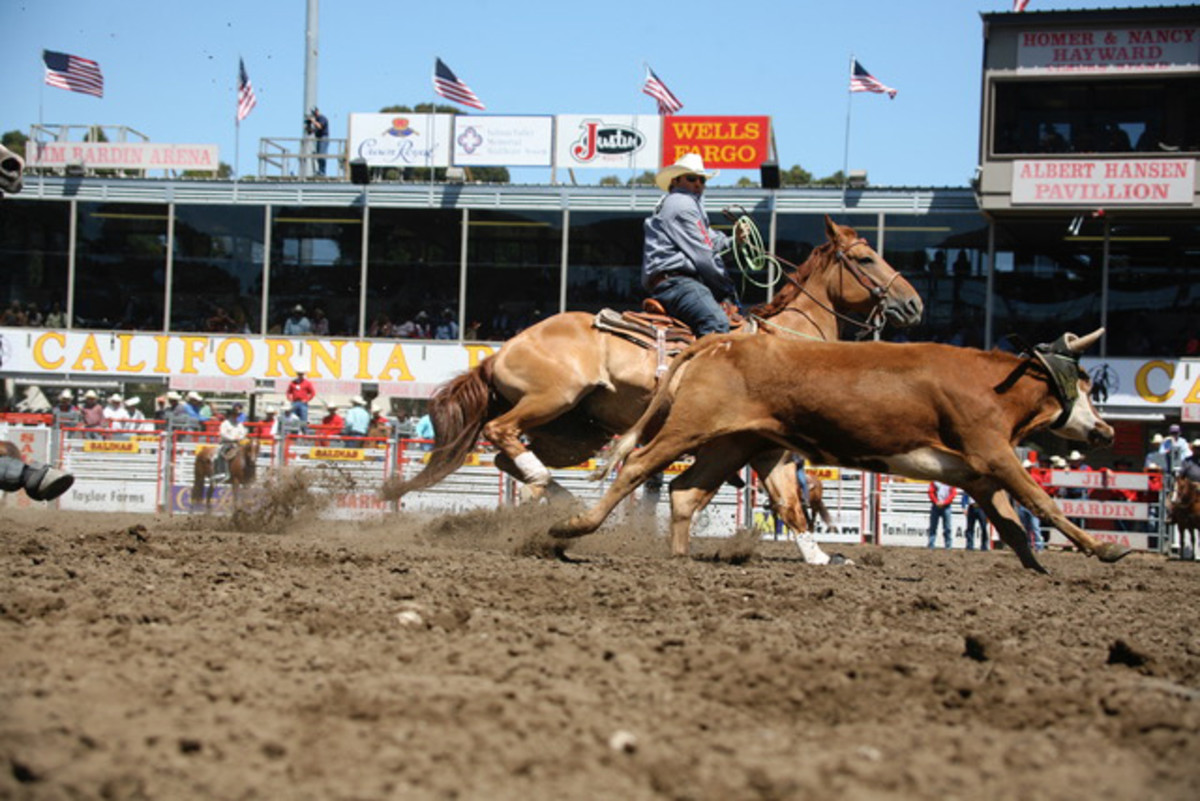
Forbearance
“When Randon and I were young, we would fight a little,” recalled Jason Adams, who made the Finals in 2006 with his older brother, then almost made it again in 2009 with his younger brother, Austin, before quitting rodeo to found Bex Sunglasses in his native Logandale, Nevada (bexsunglasses.com). “But as soon as we started to rope together in the PRCA, we never fought again. Honestly, the road is so lonely at that level, and so difficult and stressful, that we needed each other. You can trust people to a point, right? But we were brothers and we had to really tap into that.”
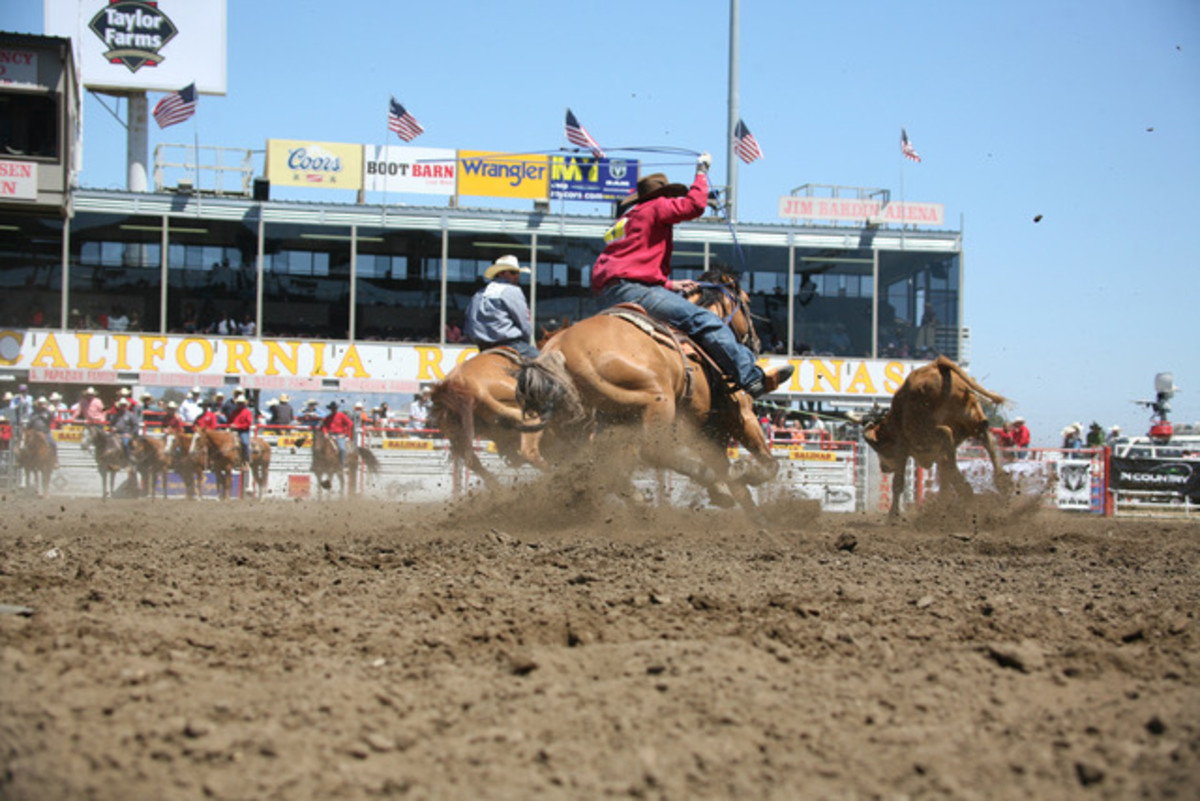
Richard Field-Levine photography
He’ll never forget the time he was dying to win Salinas, to get that one buckle, and he and Randon came back second or third callback. Randon got a leg.
“So we’re in the truck headed to the Cheyenne short round the next day, and I’m a young idiot,” recalled Jason. “I was like, ‘What’s your problem? Did you get nervous? Do I need to teach you how to handle pressure?’ Rather than fight back, he just said, ‘You’re right, I’m sorry.’
“Then, we’d won the first two rounds at Cheyenne and were high call by a mile to win the one buckle that he’d always wanted,” Jason added. “I hickeyed a horn and he got two feet. Riding out that long arena, he put his arm around me, laughing, and said, ‘What’s your problem, dude? Did you get nervous?’”
There’s something about those big-sibling, care-taking feels that soften the sticking points in a sibling partnership.
“Chris almost made the Finals his rookie year,” recalled Daniel Green. “When I stepped in, he had to go through the growing pains of breaking in a rookie who had a lot of ability but not a lot of control.”
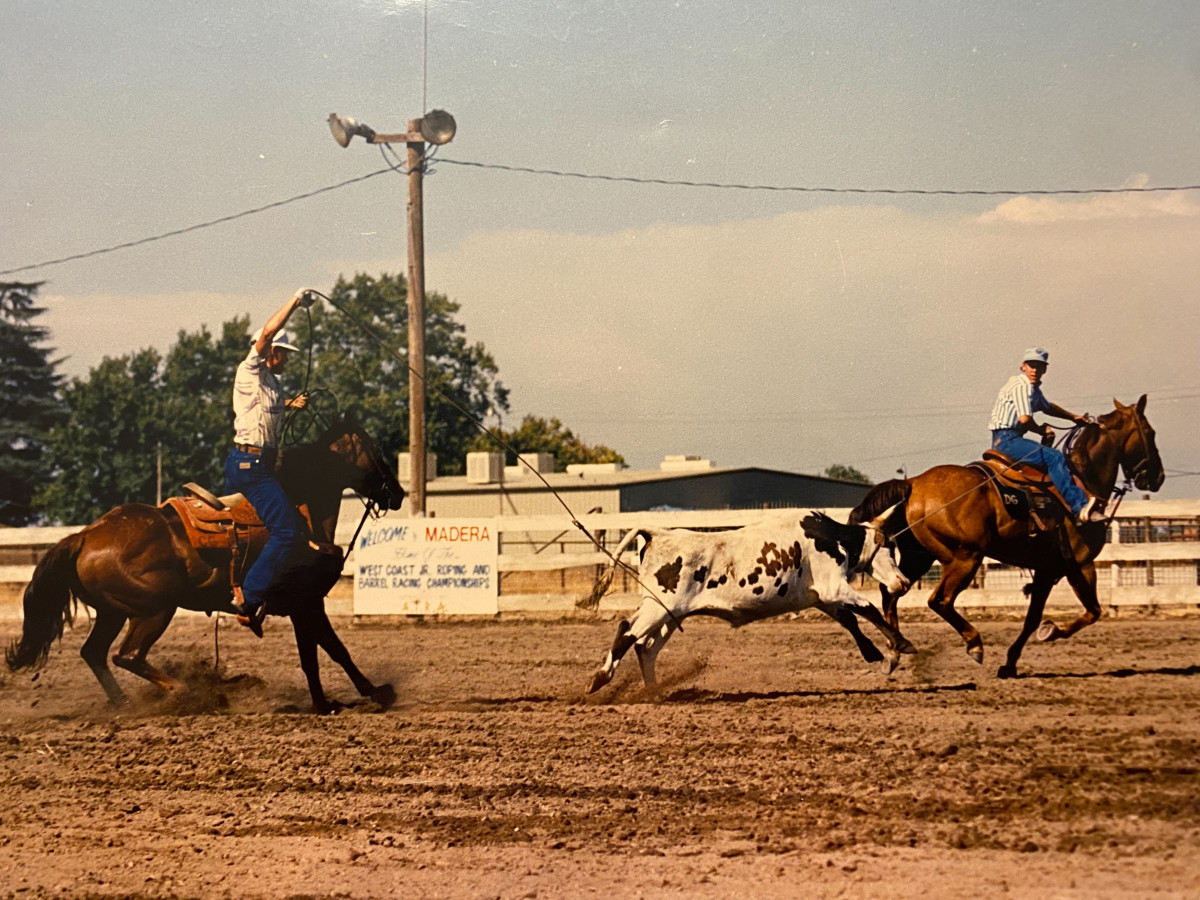
Few guys could catch as many as Chris behind Daniel back then. But it’s what he’d always done. Jay Tittel, who made the Big Show with his older brother Ryon in 2005, said brothers can be arguing one minute and laughing the next.
“Nothing is off-limits to say to your brother,” said Jake Cooper, who roped with his twin, Jim Ross, at the 2007 NFR. “It might be, ‘Hey man, you can’t be slipping a leg on those good ones,’ or ‘Dude, you’ve got to get out better.’ Those are things you probably shouldn’t say to your partner.”
But that openness, he says, actually takes pressure off. And saying it is often the only way to vent. After all, Cooper joked, it’s not like you can call home and complain about your partner. He and Jim Ross, as twins, actually had no hierarchy to lean on.
“We both would feel like the older brother and the boss when it came to certain things,” recounted Jake. “Having a veteran on the team would have helped calm things down because, being young, we’d panic a little bit. I think it’s one thing that held us back. But it’s also why we’re so close now.”
Nobody had more of an older brother vibe—or, really, a dad vibe—than New Mexico’s Paul Petska, who took in little brother Monty Joe at the age of 16. Paul was almost 30. He caught rides for his kid brother to jackpots and turned him steers every afternoon, but only five or 10 because he was so busy. They finally entered together, making back-to-back NFRs in 1985–86 and winning the ’86 NFR average title.
“When I roped with Monty Joe and later Cory, that was the funnest thing I ever did in rodeo,” Paul said. “When I tried roping with other guys, I didn’t like it.”
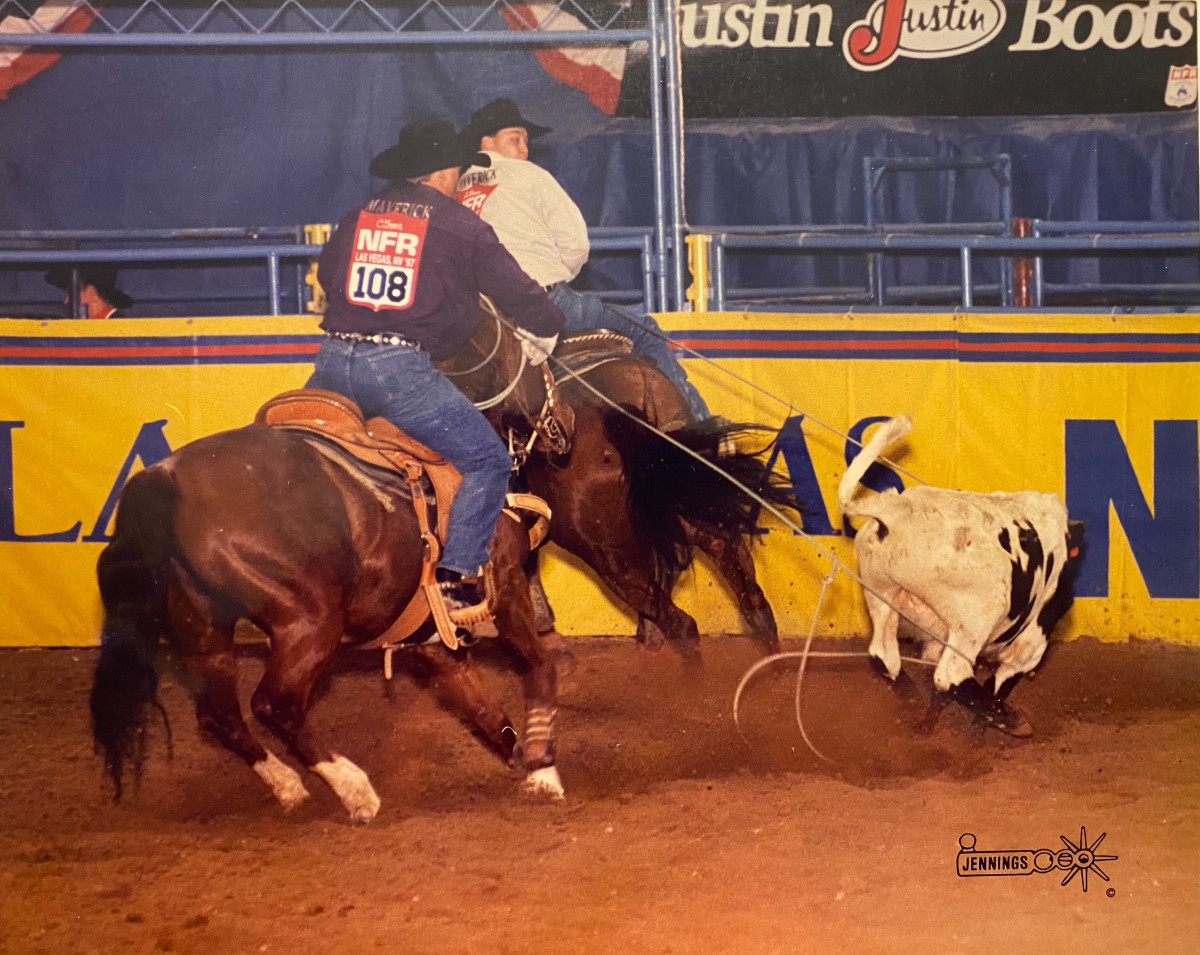
Jennings Photography
Pressure cooker
The problem when roping with family, according to Jimmy Rodriguez, is trying a little too hard.
“You’ve got to keep everything level,” he said. “You don’t need to try any harder for your brother than you do your other partners.”
That’s not easy. Especially when various guys talk a little smack in hopes of picking off one brother or another for themselves. Imagine the heckling on the PRCA trail in 1995–97, when a full third of those NFR teams literally grew up roping with and against each other. From one pocket of central California straight to the NFR came Wes and Cameron Moore, Daniel and Chris Green, Brent and Kyle Lockett with their respective headers, and cousins Lidden and Cody Cowden. Rivalry oozed out of Capri campers all day.
And if brothers can withstand that over the years, then they’re also butting up against parental expectations.
“When we were in high school, Ryon was one of the top heelers around and I wasn’t very good yet,” said Jay Tittel. “My folks were trying to decide what was best for both boys. Ryon could have gotten somebody better, but we decided to rope together and ended up winning. It doesn’t sound like that big of a deal, but it was for me—to know they put their trust in me and it worked out.”
An interesting thing happened when Jason and Randon’s dad, Wes Adams, passed away in 2011.
“We had all gotten into roping because of my father, and it was often the only time we got to see him,” Jason recalled. “That winter he passed, roping just wasn’t the same.”
But the boys were already entered in Houston.
“We went, but were still mourning and we didn’t care,” he said. “We won second at Houston and went to a few more and didn’t care. And won. We weren’t even practicing. My horse wasn’t even shod. In July, we threw Transmission and Diesel in the stock trailer and drove to the steer pasture, unloaded and ran five or six steers down, stretching them out and taking our ropes off, just cowboy stuff. Then we went to Salinas. We won it. Houston didn’t count that year, or we’d have made the NFR in eight rodeos. It taught me the value of not taking roping too serious.”
Moving On
The summer following their ’06 NFR appearance, the Adams boys were in the top 15 again when Jason decided to trade his spurs for football cleats at Southern Virginia University. But not until he found “Rambo” a good header in Matt Sherwood. It still hit him hard when Randon ended up 16th that year. Luckily, Sherwood would lead his big brother to a new earnings record and the heeling gold buckle just one year later.
There were no hard feelings when the Cooper twins decided not to go hard anymore after seven years and one NFR. Since they parted ways a decade ago, each has been to the Finals three more time—Jake with Russell Cardoza and Caleb Anderson, and Jim Ross during his four-year stint with Brandon Beers.
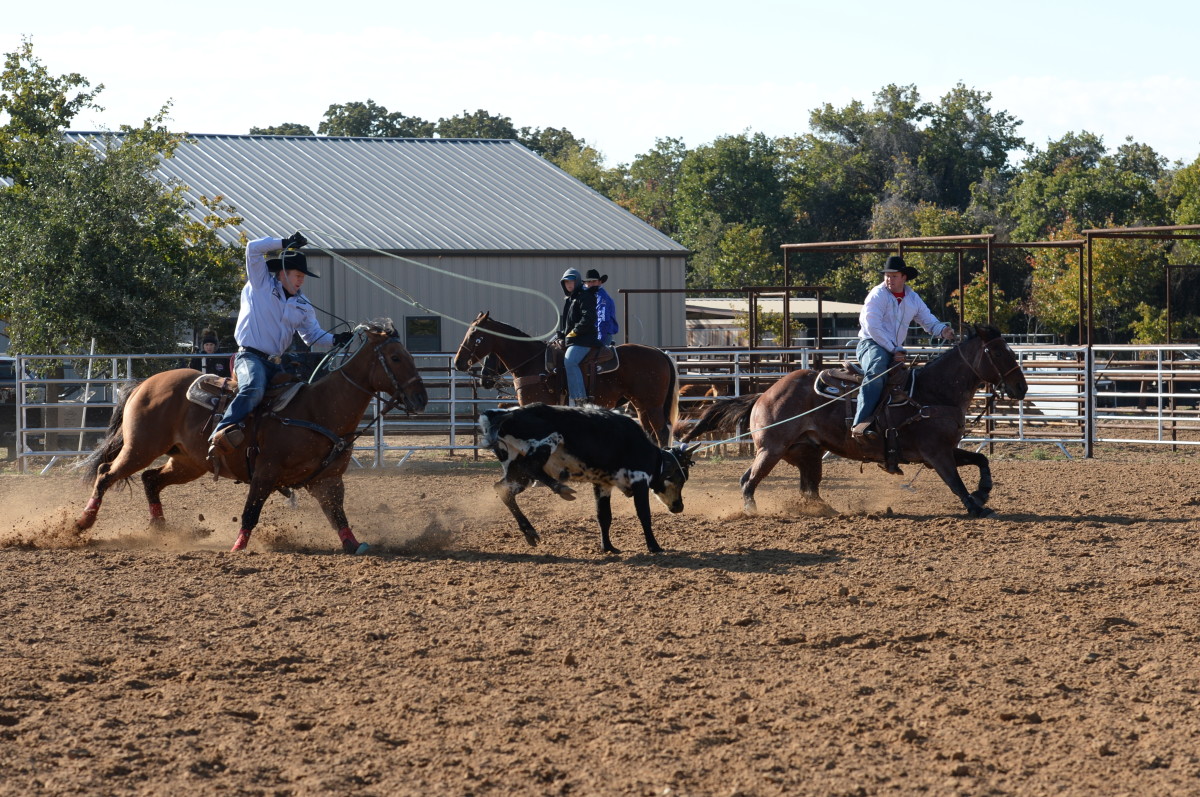
When the Greens gave it up in ’98 right after their fourth NFR, Chris was just 28. Without his brother sticking for him anymore, he decided to step off the trail to be a dad to Tanner, who was expected that summer. He’s since raised two more boys while making a living building houses in Texas.
It’s typical for families and businesses to take partners in different directions. Still, said Daniel, who would rope at six more NFRs, the decision is heavier when it’s your brother.
“My dad loved to rope,” he said of Vernon Green, whom the family lost in May. “So that was pretty cool for him to get to watch us rope at the highest level at the biggest rodeo in the world. But it’s also what made it so hard when we quit. It was tough on everybody, really.”
The longest-running brother team in history hasn’t made that tough call. The Minor boys have 15 years together and counting. Not even Speed and Rich roped this long.
“It can be stressful when you’re not winning, because you’re family,” said Riley. “We get along pretty good for brothers. I’m sure at times, we’ve thought about switching partners, or he has silently. I haven’t really. I’m sure he’d love to heel for Kaleb and I’d love to head for Junior, right? But we’ve been successful, so why change?”
Everyone knows “successful” comes and goes spectacularly in this sport. Luckily, these two are old hands at the rodeo roller coaster. That includes not just Riley’s ill-timed recent accident in Pendleton that kept him out of the Finals while Brady got in with Derrick Begay, but also his accident that year on the fifth steer at the BFI when they were winning second on four, and his accident that year in San Antonio that busted the same leg and kept them both out of the 2012 NFR.
In fact, Little Brother’s incredible “we’ll get ’em next time” mindset after every heart-breaking near-miss has finally rubbed off enough on Brady that Riley jokes his older brother’s “gotten more positive in his old age.”
“Our mentality as partners is like me being crippled,” Riley said. “You take it one steer at a time and one rodeo at a time. You regroup and start over next year and, hopefully, rope better and make the Finals.”
Riley says the best part of his entire season was that Brady made the Finals. Blood is truly thick. TRJ








